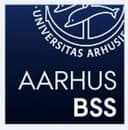Postdoctoral Research Associate in Sum-Frequency Generation Microscopy of Biomolecular Self-Assembly
Postdoctoral Research Associate in Sum-Frequency Generation Microscopy of Biomolecular Self-Assembly
Fritz Haber Institute of the Max Planck Society - Department of Physical Chemistry
Location: Berlin - Germany
Salary: €69,984 to €86,114 or £60,871.80 to £74,901.61 (converted salary*) depending on experience; Tvöd E13
Hours: Full Time
Contract Type: Fixed-Term/Contract
Placed On: 13th August 2025
Closes: 12th October 2025
The Fritz Haber Institute (FHI) of the Max Planck Society is an internationally renowned research institute and part of Germany’s most successful research institution. Within the historic grounds in the south-west of Berlin, more than 400 employees across 5 departments at the FHI conduct and facilitate top-level research in fundamental Physics and Chemistry.
The Department of Physical Chemistry in the institute focusses on the structure and dynamics of elementary processes in solids and at surfaces. Within this broader research theme, the Nonlinear Chemical Imaging (NCI) group of Dr. Alexander Fellows focusses on using nonlinear light-matter interactions to probe the complex structure within 2D assemblies of biomolecules. The group currently invites applications for an open position as a Postdoctoral Research Associate (d/f/m) in Sum-Frequency Generation Microscopy of Biomolecular Self-Assembly with a duration of up to 3 years.
In this position, you would join the project using the recently developed and state-of-the-art sum-frequency generation (SFG) microscope to study biomolecular self-assembly. This would primarily involve furthering the recent efforts to elucidate the heterogeneity in molecular structure formed in model phospholipid membranes. Beyond this, the project aims to expand such investigations to bilayer systems and also investigate the influence of lipid-protein and protein-protein interactions. Finally, these studies will extend beyond natural self-assembly to the regime involving the manipulation of membrane structure using molecular machines.
More broadly, the NCI group continually strives to advance the capabilities of such nonlinear microscopy techniques and establish new methods for the elucidation of molecular structures at interfaces. As such, within this project there are several opportunities to also pursue technique development research, e.g. enabling the study of dynamical systems with SFG microscopy, as well as the development of multi-modal imaging approaches.
Requirements: Applicants for this position should hold a Ph.D. in physics, chemistry, or a related subject and have broad knowledge in molecular spectroscopy and general optics. Furthermore, experimental experience in one or more of the following areas is highly desirable: SFG spectroscopy/microscopy, Ultrafast spectroscopy, Optical microscopy, Handling of proteins or other biomolecules, Techniques for the formation of model membranes e.g. LB/LS deposition, RSE, etc.
We Offer: A friendly and respectful English-speaking working environment, Flexible working hours, Access to a world-class laboratory with state-of-the-art infrastructure and instrumentation, Attractive and individualised training opportunities, e.g., through the Planck Academy, with the aim to develop the skillsets required for an independent research career, Excellent connections to public transport, bicycle parking, charging stations for e-vehicles, good parking facilities, Highly subsidised travel across the entirety of Germany.
Your Application: You can apply for this position by submitting the following documents through the MPG postdoc program website (https://postdocprogram.mpg.de/node/21092): Motivation letter detailing your background, reason for applying, and fit to the position, CV (incl. list of publications), Names and email addresses of at least two references. The application portal will be open for 6 weeks from 1st September – 12th October. The FHI strives for gender equality and diversity and thus we welcome applications from those from all backgrounds. The Max Planck Society is committed to increasing the number of individuals with disabilities in its workforce and therefore encourages applications from such qualified individuals. Furthermore, the Max Planck Society seeks to increase gender diversity in research and therefore explicitly encourages women and non-binary people to apply. For more information or informal inquires please contact: Alexander Fellows: fellows@fhi-berlin.mpg.de
Whoops! This job is not yet sponsored…
Or, view more options below
View full job details
See the complete job description, requirements, and application process
Express interest in this position
Let Fritz Haber Institute know you're interested in Postdoctoral Research Associate in Sum-Frequency Generation Microscopy of Biomolecular Self-Assembly
Get similar job alerts
Receive notifications when similar positions become available
.png&w=750&q=75)
.png&w=128&q=75)

